The Guardsman
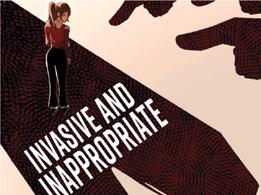
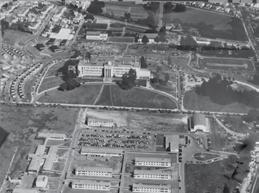



By Tom Whitehead tomwhi@ix.netcom.com
The administration's actions to combat ghost students appear to finally be taking effect, just in time for fall enrollment. The hope on the horizon comes despite continued enrollment challenges for the summer session.
Only nine days after the start of summer enrollment, The Guardsman surveyed 84 class sections in 54 introductory-level courses and revealed that 86% had no seats available, and 76% had no waiting-list seats. This suggests that legitimate students wanting to get into classes this summer may need to attend the first class meeting and ask the professor to be added.
However, on May 10, just days after fall enrollment opened, many seats were still available in all of the nearly 190 class sections of the 50 introductory-level courses surveyed—a promising indicator that ghost student activity has been greatly reduced.
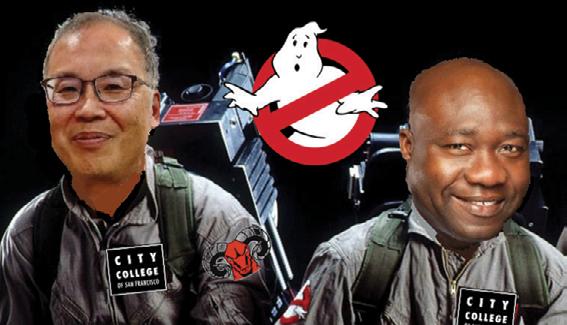
Vice Chancellor of Student Affairs, Lisa Cooper-Wilkins, confirmed that the number of ghost students is down considerably for the fall. “The number I heard was 75%, at least at this point.”
“I know that at least for the start of the summer term, there was a considerably larger number of students who were identified [as ghost students], so going into the fall, I
think the same thing will be true,” Cooper-Wilkins said.
Vice Chancellor of Academic and Institutional Affairs David Yee explained that although he has not yet seen any numbers from the Department of Research and Planning, he was glad to hear that there is at least anecdotal evidence of lower ghost student activity in the Fall enrollment.
By Karim Farahat karim.farahat0823@gmail.com
T
o gauge City College's opinion of President Trump, The Guardsman conducted an anonymous poll, asking 55 students to rate their approval of his presidency thus far.
Throughout his first hundred days, the United States and the world have witnessed tremendous political change and tension. There has been a lot of controversy surrounding the administration's policies as well as Trump's methods to bring his vision for the country into reality.
Of the 53 students and two
faculty who were asked to rate President Trump, seven chose not to answer because they either did not have enough information on the matter, or purposefully ignored the news to avoid incurred stress from entertaining politics.
“I have been ignoring the news because I do not want to engage in
By Qi Mai
qmai10@mail.ccsf.edu
This year marks the fourth annual Asian American, Native Hawaiian, Pacific Islander Heritage Month, with the theme “A Legacy of Leadership and Resilience.”
On May 1, the Asian American, Pacific Islander Heritage Celebration Committee hosted the 21st Annual Heritage Awards & Gala Reception,
officially kicking off the City and County of San Francisco's AANHPI Heritage Month celebrations. City College Board of Trustees member Alan Wong was in attendance.
The event honored four organizations—the Chinese Culture Center of San Francisco, Japan Society of Northern California, Korean Center and Pacific Asian American Women's Bay Area Coalition—as well as two outstanding students, Charlotte
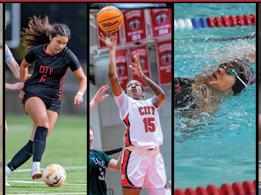
By Tabari Morris tmorri47@mail.ccsf.edu
City College has experienced a dynamic fortnight of development and preparations marked by landmark accreditation events, operational redesigns, and a series of upcoming student-focused events. The events in progress indicate the college's sustained attempts to rationalize its fiscal and administrative systems while remaining on the path of academic excellence and relevance to society.
The March 28, 2025, follow-up visit of the Accrediting Commission for Community and Junior Colleges was cautiously optimistic, as indicated in the Accreditation Steering Committee's May 1 report. The peer review panel acknowledged the college's willingness to address the previous governance and financial concerns, i.e., the need to connect financial decisions with long-term stability and not impinge on the administration's operations. While a final accreditation determination remains pending, the college has progressed on its Institutional & Effectiveness Plan, developed jointly with the California Community Colleges Chancellor's Office Partnership Resource Team.
One of the project's core elements is the crosswalk project, which aligns the ACCJC's 2024 standards with existing standing committees and academic governance structures. The system review targets the inclusion of accreditation standards in everyday work to maintain ongoing adherence to quality standards.
The graduation ceremony is taking place on Thursday, May 22, at 11:30 a.m., at George M. Rush Stadium. This year, City College is proud to honor Bay Area sports commentator Bonta Hill as Alumni of the Year and commencement speaker. Hill currently hosts Warriors Pregame Live and Warriors Postgame Live, and co-hosts the Dubs Talk podcast alongside Warriors Insider Monte Poole. After catching the eye of Journalism Department Chair Juan Gonzales, Hill was offered the sports editorship at The Guardsman, where he began his career.
“The Guardsman was a great platform for me to have a direction for what I wanted to do,” said Hill. “That paper really changed my life.”
The Lavender Graduation, held on May 14, 2025, celebrated LGBTQ+ graduates and certificate completions, with co-sponsorship by the Women's & Gender Studies department and Queer Resource Center. In keeping with City College's broader equity work, the ceremony was dedicated to inclusivity and celebrating multiple types of student success.
On May 13, 2025, the Listen & Learn Series also held a virtual workshop on fair assessment practices and engaged the faculty and staff in discussions on closing the gaps in student achievement. The workshops help support the college's Strategic Plan goals in expanding student support systems and resource accessibility.
May 13, 2025, Self-Care: Graceful Shirt Design Workshop by the Office of Student Equity united art and mental wellness. Students designed scarves and shirt patterns to symbolize CCSF's holistic student wellness.
“Lottie” Nguyen and Titus Lawson.
Over 50 exciting AANHPI cultural performances, workshops, film screenings, community festivals, art exhibitions and author talks will occur across the city throughout May.
Art & Community
On April 25, Ruth's Table Art Gallery, located at 3160 21st Street in
Stabilization and strategic vision in the past two weeks at City College have solidified its twin dedication to student success and institutional stability. Accreditation compliance in progress, and a full calendar of public events in hand, the college will be positioned to weather any future challenges and to maintain its legacy intact. As the chancellor search comes to a close by the end of May, the transition of leadership at City College will play a defining role in penning its next chapter.
Staff
Editor-in-Chief
John R. Adkins
News Editor
Tabari Morris
Feature Editor
Rae Daniels-Henderson
Op-Ed Editor
Emily Thorsen
Sports Editor
Henry Crowell
Social Media Editor
Fran Smith
Photo Editor
Kyra Young
Copy Editors
John R. Adkins
Kyra Young
Writers
Cooper Maldonado
Ellen Yoshi
Finbar LaBelle
Henry Crowell
Karim Farahat
Qi Mai
Photographers Bob Kinoshita
Isaac Ortiz
Karim Farahat
Illustrators
David Thomas
Isis Cordova
Graphic Designers
Cindy Chan
Isabelle Salvadori
Sebastien Thugnet
Tiffany Lam
Xiaoyi Yu
Advisor Juan Gonzales jagonzal@ccsf.edu
Contact us
TheGuardsman.com
info@theguardsman.com (415) 239-3446
Mailing Address
50 Frida Kahlo Way, Box V-67
San Francisco, CA 94112 Bungalow 615
Follow us


@TheGuardsmanCCSF
@TheGuardsmanCCSF

@TheGuardsman

@TheGuardsman
For even more articles, stay up to date at www.theguardsman.com

Join The Guardsman!
Contact Juan Gonzales at 415-517-4426.
continued from page 1
something that is on the other side of the country.”
“I hear so much now, it's just like static electricity now. It's like how people fall asleep at the white noise of a television … If I get too involved in it, then it starts to affect my ability to keep my head above water.”
Of the 48 people who gave a rating, there was a clear sentiment that Trump was disliked and that the nation would be better off with a new President.
“With him, this country is run off of stupidity, ignorance and hatred.”
Some of the most common points made by students when they justified their low ratings included mentions of Trump's disregard for others and the law, his questionable motives and his destructive nature.
“[He is] endangering people who are already most vulnerable.”
“He's dangerous for democracy.”
“He's just a terrible person.”
“He is vile, cutting off all these funds from the public so that he can
continued from page 1
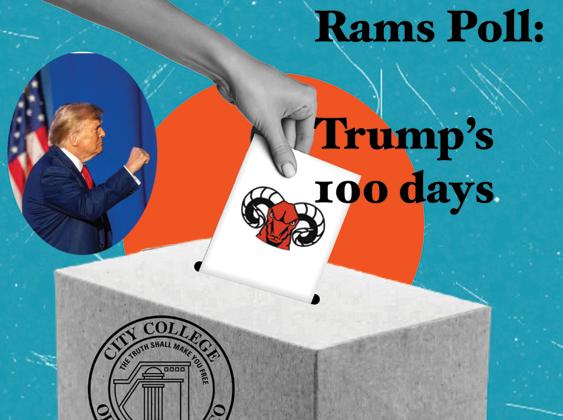
give the money to his rich friends.”
While Trump's character flaws and dishonesty in his motives were the driving forces behind most students' disdain towards our president, others point to some of his policies and the impacts it has on the livelihoods of the people. Of all the qualms that were brought up, there was a particular emphasis on his immigration policies, how he has
the Mission and owned by Front Porch Communities and Services, launched the ROOTED Artists Exhibition to celebrate AANHPI Heritage Month and mark the 15th anniversary of Ruth's Table's first exhibition, Taking Root.
The grand opening attracted around 350 attendees, including 60 Bay Area-based AANHPI artists, their families, friends, community members, and over 100 seniors from Bethany Senior Housing, also operated by Front Porch Communities and Services.
The exhibition featured 80 works by 60 artists, representing diverse heritages, including Chinese, Korean, Japanese, Indian, Vietnamese, Thai, Filipino, Hawaiian and second-generation descendants. The works included paintings, photography, sculptures and videos. Due to the volume of works, the gallery adopted a salon-style display.
“I am very inspired by how the exhibition has brought together so many people from different backgrounds. It shows how strong we are as a community when we work together,” said Evan Johnson, Director of Ruth's Table Art Gallery.
The exhibition theme, ROOTED, pays tribute to Ruth Asawa, the renowned Japanese American modernist artist. Asawa's legacy continues to inspire the art community, especially through her Growth mosaic at Bethany Center, which symbolizes roots spreading in all directions to nourish and strengthen life.
On April 25–26, City College's Physical Education and Dance Department presented its Spring Dance Concert, Full Circle, at the Wellness Center to celebrate AANHPI Heritage Month.
The concert highlighted new works from the college's dance program, featuring a variety of dance styles and original choreography by students, faculty and guest artists. The performances explored themes of cultural identity, resilience and community, reflecting the diversity of the AANHPI community.
The event drew a large crowd of students, faculty and community members, who applauded the dancers for their artistry and passion. Full Circle not only celebrated the performers' talents but also reinforced City College's commitment to honoring the cultural heritage of its AANHPI students.
On April 30, the City College Career Center hosted an inspiring AAPI Career Panel in HBB 140, drawing over 30 students eager to hear from five accomplished AAPI professionals.
Panelists included David Sim, Senior Associate for Trust & Safety at Instacart; Tommy Doan, Real Estate Agent at Sequoia Real Estate; MarryAnne Cabansagan, Social Worker at UCSF; Melanie Kim, State Policy Director for the City and County of San Francisco; and Mano Raju, Public Defender for the City and County of San Francisco.
Panelists shared insights about their career journeys, challenges and the lessons they've learned. A key moment came when students asked, “What is one challenge you have faced as an Asian professional, and how did you deal with it?” The speakers spoke candidly about confronting stereotypes, overcoming imposter syndrome and navigating workplace dynamics where they were sometimes underestimated. They emphasized the importance of building professional networks and staying true to their values and cultural identity.
For many of the predominantly Asian student audience, the event offered not just practical career advice but also encouragement and affirmation. The panel underscored that success often involves resilience, community support and self-advocacy. The Career Center plans to continue hosting events like this to connect students with inspiring professionals.
right now, so it has really impaired our lives.”
“I am a son of immigrant parents, so that would be a big reason for giving a rating two of five.”
Of the 48 people who gave an answer to the poll, two students had mixed feelings about the President, saying there is some good and some bad.
been detrimental to the economy so far and the impact it has had on people's lives.
“I do a lot of online shopping and I don't like the tariffs.”
“The instability that he has created in the immigrant community.
I'm Latina. I am very scared for me and my family.”
“The tariffs. If I buy something from China, it's really expensive
There were three dissenters who gave very strong praise of the President, with one student even going so far as to say, “I would give him my salary. I would take a bullet for him. I would kill for him if he asked me to. He's a man of the people. Look at all his policies. They only benefit society and the world. That's all that matters, shit needs to get done. I don't care about feelings. We are running a country here.”
“I would give it a five out of five. I don't like the radical stuff he says, but I'm curious to see whether his economics will work.”
“I would rate it a four out of five right now. I feel like he has a plan and something cooking under his sleeve where he will get us back on track.”
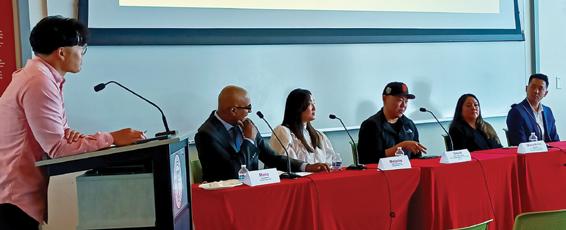
On May 1, the Chinatown/North Beach Center Library and Dasen American Academy hosted a Tea Ceremony, offering students, faculty, and community members an immersive cultural experience focused on the beauty, tradition and meaning of tea preparation.
The program, titled East Meets West: Asian American and Pacific Islander Heritage Month, featured a live tea ceremony demonstration followed by a discussion on the cultural significance of tea across different societies. Attendees sampled a variety of teas and enjoyed traditional treats.
For many ESL students, the event provided not just a cultural experience but also an educational opportunity. The ceremony expanded their English vocabulary related to tea traditions and deepened their understanding of the values of purity, harmony and respect inherent in the ceremony.
As the college celebrates AANHPI Heritage Month, we are reminded that this commemoration aims to recognize the contributions and influence of Asian Americans, Native Hawaiians, and Pacific Islander Americans to the history, culture and achievements of the United States. Among these rich cultural traditions, the Lunar New Year stands out as one of the most significant and cherished.
However, a concerning moment emerged during the City College of San Francisco Board of Trustees meeting on April 24, 2025. In a rare and heartfelt Trustee report, Alan Wong expressed his deep concern that City College might not observe the Lunar New Year in 2026. He broke from his usual demeanor and candidly shared that he would feel embarrassed by the Board's symbolic gestures if the college failed to officially recognize this important holiday. He emphasized that other communities would rightly be disappointed by such an oversight. Despite institutional inaction, he noted that celebrations have already started at the college—evidence of the community's desire and effort.
Alan Wong has long championed the cause. In 2022, California Governor Gavin Newsom signed AB 2596, designating Lunar New Year as an optional state holiday. However, that law did not apply to community colleges. Recognizing this gap, Wong pushed for legislative change, urging state leaders to update the California Community College Education Code. His efforts bore fruit when, in Oct. 2023, Governor Newsom signed AB 264—authored by Assembly member Phil Ting—which finally gave community colleges the flexibility to observe Lunar New Year. As Wong said on Oct. 9, 2023: “Recognition of Lunar New Year at our community colleges is about celebrating the large Asian student body and staff that we have.”
As City College's largest student demographic, Asian students deserve to see their culture honored meaningfully, not just in name but in action.
“We talk about social justice a lot here at City College, but not for the Asian community. We might have a resolution on API Heritage Month, we've been doing that as a custom, but I would be embarrassed to vote for that,” Wong said during the April board meeting.
continued from page 1
What has changed is that the college has been actively sharing information with the State Chancellor's office, and vice versa, with the State Chancellor's office doing additional upstream identity verification.
Yee said the new measures implemented for the Fall Semester have caught some fraudsters in the act.
The college has also started working with the City Attorney's office and the State Attorney General's office to prosecute those they catch.
Cooper-Wilkins said that while
enhancing the screening measures will identify more ghost students, she's worried that it may also misidentify some real students who, for whatever reason, fit the profile of a ghost student.
“On rare occasions, somebody posing as a real student may actually come into the college, to answer the verification requests and instead be apprehended, but we just don't have a lot of history with that at this point,” Cooper-Wilkins said.
“There has been broad communication among community colleges across the state about what the different schools are experiencing and the approaches they take, including
recommendations about best practices,” Cooper-Wilkins explained. They also share information about fraud detection systems, despite each college being on its own to identify, procure and test these systems.
The cost to purchase fraud detection software alone is expected to be on the order of $55,000. In addition, there are annual transaction costs of roughly the same magnitude. Neither of which accounts for the cost of the time that officials and faculty have to devote to staying ahead of the fraud rings.
Fortunately, the college has hired a new Chief Technology Officer, Patrick Ekoue-Totou, who started on
May 2 and will reside in the Finance and Administration department. As the College of Marin's chief information officer for the past 11 years, Ekoue-Totou developed expertise in cybersecurity.
“He has already played a big role in terms of assessing software. There are many best practices that we may be able to employ to strengthen our systems further here that Patrick implemented,” said Yulian Ligioso, Interim Vice Chancellor of Finance and Administration.
Administrators at the college agree that part of the success strategy depends on keeping the fraud rings in the dark about the specifics of the
measures being implemented.
Yee admitted that some ghost students will manage to get through despite these measures. “The faculty are the last line of defense” for identifying ghost students who manage to get past the detection systems and occupy seats in the classroom. Yee reminded students that they aren't powerless in identifying ghost students either. “For example, when they're working on a team project and notice one of the members is not participating.”
Despite the progress made, the call to action for faculty and students serves as a reminder that the college is not out of the woods yet.
By Qi Mai qmai10@mail.ccsf.edu
Over the past year, student journalists across four California campuses have faced serious threats and retaliation for their work.
Most recently, on April 23, the San Francisco Chronicle reported that Eric Gustafson, a journalism teacher and advisor at Lowell High School in San Francisco, was reassigned to teach only English classes. Gustafson claims the decision was retaliation for student reporting, which administrators found controversial. The San Francisco Unified School District argues the move was routine and unrelated to student journalism.
The controversy stems from an Oct. 2024 article in The Lowell, the student-run newspaper, which quoted three students—under pseudonyms—alleging verbal harassment by teachers. Although no teachers were named, the article caused unrest on campus, with some students confronting staff they believed were implicated. Gustafson also cited Principal Jan Bautista's concerns over a proposed investigation into whether English teachers were using AI to grade papers.
In response, the Journalism Education Association of Northern California sent a letter to SFUSD leaders, warning that Gustafson's
reassignment may violate California's student free expression laws. Gustafson is now seeking pro bono legal support and considering legal action, arguing that the district's actions threaten student press freedom.
Just last year, the Mountain View Voice reported on Feb. 27, 2024, that student journalists at Mountain View High School were pressured to censor an investigative article on sexual harassment. After publishing the story in the student publication, The Oracle, they experienced administrative retaliation. In response, students and their advisor filed a lawsuit alleging censorship, threats and violations of California's student free speech laws.
These incidents have prompted strong responses from local journalism organizations and sparked broader conversations about student journalism, press freedom and the First Amendment.
“Bullying or intimidating high school or college journalists will not be tolerated, and we rise against it,” said San Francisco State Journalism Chair Jessa Garnier. “Lowell's actions against their long-time journalism advisor are an embarrassment to the institution and must be immediately reversed. I'm not a lawyer so I can't give legal advice or opinion. But, to put it simply: It stinks. And we can smell it from here, across the street
By Tabari Morris
tmorri47@mail.ccsf.edu
T
he student elections of 2025 at the City College were a milestone moment in the institution's democratic heritage, with record student turnout and policy action of unprecedented scope. The elections occurred in the context of accreditation challenges to the institution and shifting student demographics.
The Spring 2025 Associated Students election at City College had a record student turnout as college bulletins posted a “record student voter turnout.” While candidate-by-candidate statistics were unavailable in publicly available data, the rate of increase in turnout reflects increased awareness of the necessity of having student government represent issues on campus such as affordability, safety on campus and academic support services.
The Associated Students Executive Council, with its own guiding document requiring representation from City College campuses and centers, is also responsible for articulately representing student concerns. The excitement surrounding this year's election also stems from a long-standing push to engender better student leader–general student relations such as through initiatives like the Mission Center Council and events and activism on the Mission Center campus.
The 2025 election at City College shows both progress and continued struggle in student government. Historic voter turnout and noncitizen
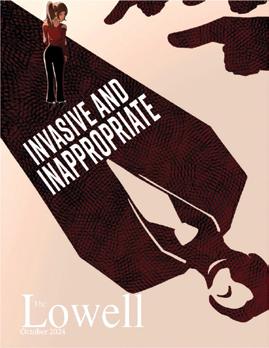
at SF State. We will do everything we can to support Eric, Thomas and any journalism students who face this kind of narrow-minded and dangerous action to censor their work and silence their voice.”
The incident at Lowell High School raises important legal and constitutional concerns surrounding student press freedoms and the protections afforded to their faculty advisors under California law.
David Greene, Civil Liberties director and senior staff attorney at the Electronic Frontier Foundation, analyzed California laws that grant student journalists substantially the same rights as professional journalists, recognizing the critical role of editorial independence even within
a school environment. This legal framework is designed to shield student expression from undue interference and, by extension, to protect journalism advisors who support these rights.
“The Journalism Teacher Protection Act specifically prohibits schools from retaliating against advisors for defending student press freedoms,” Greene said. “Any administrative action that undermines these protections—such as removing a journalism teacher in response to controversial student reporting—not only risks violating state law but also creates a chilling effect on student expression.”
The loss of a journalism adviser or class, as seen at Lowell High School, can have far-reaching consequences. This could leave student journalists without critical guidance and may significantly diminish their ability to publish the newspaper. This disruption weakens the infrastructure that supports student journalism, threatens to silence the student voice entirely and undermines the school's entire journalism ecosystem.
Such outcomes are contrary to both the spirit and letter of California's student free expression laws, and merit careful scrutiny.
As these cases illustrate, student journalists are increasingly operating in a climate where their rights—and those of their advisers—are being
challenged. California's robust legal protections for student expression are not merely symbolic; they are essential safeguards that uphold democratic values within educational institutions.
When schools retaliate against those who support free and responsible student journalism, they risk not only violating the law but also eroding the very foundations of civic education.
District 7 Supervisor Myrna Melgar authored a student journalism resolution, introduced at the Board of Supervisors meeting on Tuesday, May 6.
Adopted on Tuesday, May 13, the resolution supported the student journalists at Lowell High School and throughout San Francisco. Staff members of The Lowell were in attendance at the meeting and spoke up during public comment. Following this, Melgar advocated for the freedoms of student journalists.
“[This] is about how student journalists are being treated, and a demand to the SFUSD to develop and implement consistent policies and procedures compliant with the law and that respect the rights of student journalists,” Melgar said. “While our constitution is being undermined, we must forcefully support the right of free speech.”
Student Trustee
Angelica Campos
Student Chancellor
Heather Brandt
Student Vice Chancellor
Juan “Mallinali” Villalobos
Associated Students Council Chinatown/ North Beach
Felix Jirathananart Kaewwika, President
Ana Claudia Castillo, Treasurer
Xiangjun Liu, Secretary
Proposition A: Chinatown Council Codes
ASC Downtown
Maria Caroliny de Oliveria, President
Temesgen Mekonnen, Vice President
Eka Tsintsadze, Treasurer
Vy Lang, Secretary
voting rights are signs of a growing culture of engagement, but accreditation and budget constraints call for focused leadership.
Trustees and student leaders will have to weigh advocacy and compliance if they are to maintain City College as a pillar of affordable higher education. These suggestions include expanding transparency in reporting
ASC Mission Center
Melissa Bonilla, President
Renata Araujo, Vice President
ASC Ocean Campus
Dahlia Gonzalez, President
Johanna Gormley, Senator
Nolan Wong, Senator
Sadiqa Karem Sha, Senator
Rosi Sarduy, Senator
Tyler Powers, Senator
Priscilla Nguy, Senator
Noel Chen, Senator
Angela Davidovich, Senator
Jay Langdon, Senator
Ellen Estrada, Senator
Donald Aingworth IV, Senator
Amir Sabino Thagavis, Senator
Jennifer Allen, Senator
Sharon Batton, Senator
election results, expanding educational outreach to the electorate and establishing mentorship programs to guide emerging student leaders. While City College reaffirms its accreditation, active participation by administrators, faculty members and students will play a key role in deciding its fate.
By Henry Crowell henrycrowell5@gmail.com
City College has had a long and rich history in San Francisco, spanning 90 years from its inception in 1935 to the present day. In celebration of the institution's 90th anniversary, The Guardsman charts the college's history to illustrate how it has evolved in tandem with the city.
The school's population grew quickly after opening, requiring expansion to classrooms throughout the city, such as at Lick-Wilmerding, Samuel Gompers Trade School (which later became the Mission Center) and Marina Junior High School. The distances between all the various classrooms gave the college the nickname “Trolley Car College.” One political ad, which campaigned for funds to build a central campus in 1938, portrayed a student “Running Around San Francisco for an Education” via cable cars, street cars and on foot.
After which, the once steadily growing enrollment was crippled when the United States entered World War II. City College provided basic educational training to Army and Navy personnel throughout the war. When the war ended, veterans came home to join high school graduates in the burgeoning San Francisco junior college.
Throughout history, residents of San Francisco have elected to fund the continued development of the college by voting in favor of well over a billion dollars worth of city bond measures.
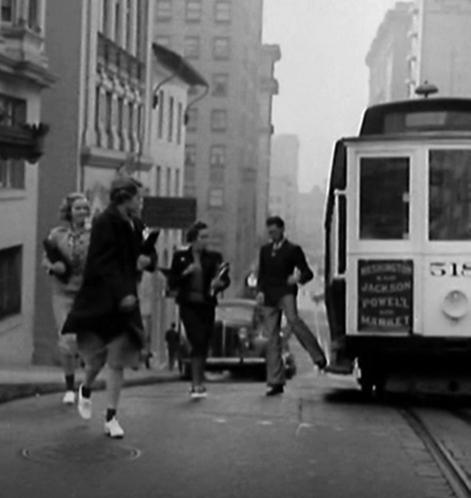
1940
February 15, 1935
San Francisco's Board of Education passes a resolution establishing a “Junior College” for San Francisco.
September 4, 1935
Instruction begins, with morning classes held at the University of California's extension at 540 Powell Street, and afternoon classes held at Galileo High School.
1937
Architect Timothy L. Pflueger, designer of numerous buildings throughout the Bay Area, such as the Castro and El Rey Theatres, unveils his proposal for a central campus. This plan includes Science Hall, as well as a library, swimming pool and performing arts center.
Timothy Pflueger invites Diego Rivera to participate in the Golden Gate International Exposition and commissions him to paint a giant mural that would later be installed at City College.
November 10, 1940
Science Hall is dedicated. The approach to the building quickly earns the name “Pneumonia Hill” due to winds reaching 40 miles per hour, which made it difficult to open the 200-pound doors at the main entrance. Two gymnasiums were built alongside it.
1952
Cloud Hall is constructed. It is named after the first president of City College, Archibald Cloud.
1956
Smith Hall is constructed, housing culinary classes and a cafeteria.
1957
Pflueger's brother, Milton, goes to the SFUSD with plans to install the Rivera mural in a new City College theater in place of the library Timothy had planned in 1937.
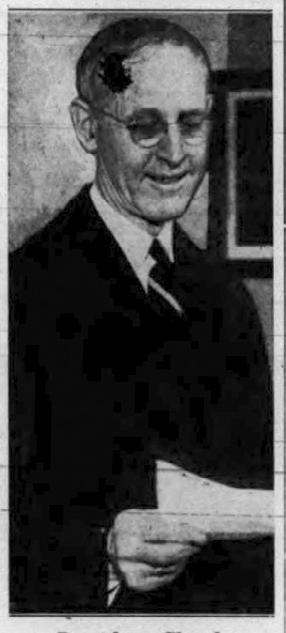
1965
The Statler Wing is added onto Smith Hall, housing the Alice Statler Library.
1968
The now-demolished Conlan Hall is introduced, named after Archibald Cloud's successor, Louis Conlan. The “education services building” included counseling offices and a larger bookstore.
November 27, 1935
The then-weekly student publication changes its name to The Guardsman for its third issue. The first two issues of the publication ran under the name Emanon, which is “no name” spelled backwards. The Guardsman used the ruins of the former Ingleside Jail as headquarters for the first five years of its existence.
1938
The price tag for the central campus is determined to be $2.8 million. While the government was willing to cover 45% of the cost with New Deal money, the college needed city voters to raise the remaining funds via a bond measure. Proposition 4, passed on September 27, 1938, guaranteed the development of the campus.

1944
The Navy builds a temporary military base on the Balboa Reservoir, which later becomes the West Campus after the end of World War II.
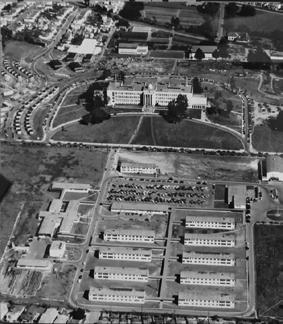
1961
Milton Pflueger's “Diego Rivera Theater” is completed, with its design accounting for the Rivera mural's installation into a curved wall. The Creative Arts building is also completed, providing space for art and music classes.

1969
The Student Union building is constructed, featuring space for the Student Council, an auditorium and a café.
1970
The Airport Campus is established at SFO, housing the Aircraft Maintenance Technology Program. By 1976, City College was in possession of three different planes, as well as two helicopters.
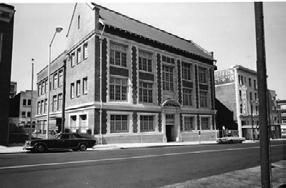

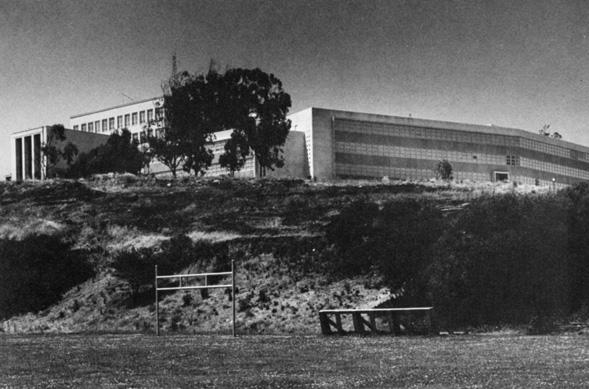
1971–1981
Numerous “Centers” are constructed across the city. John Adams campus is opened first, at the site of the former Lowell building, followed by the Mission Center, which used the space formerly occupied by the Samuel Gompers Trade School, the Downtown campus at Fourth and Mission, the Civic Center Campus (now closed) and finally the Chinatown campus. These sites offered a range of classes, including ESL courses and child development programs.
1985–1991
12.3 acres of the Balboa Reservoir are to be sold to a private developer by the city. City College envisions the Reservoir as the path to completing Ocean Campus, and fights tooth and nail to keep the land. After four rounds of voting, with housing being rejected every time, Mayor Art Agnos signed over the 12.3 acres to the college in 1991.
Evolving from a gay literature course in the early 1970s, The Queer Studies department is opened in 1989, the first of its kind in the entire country.
City College is the first Bay Area community college to offer a motorcycle maintenance program.
The giant Olmec head, known as “El Rey,” is donated to the college by thengovernor of Veracruz, Mexico, Miguel Alemán Velasco.
The Student Health Center opens, housing consultation and treatment rooms on the first floor and classrooms on the second.
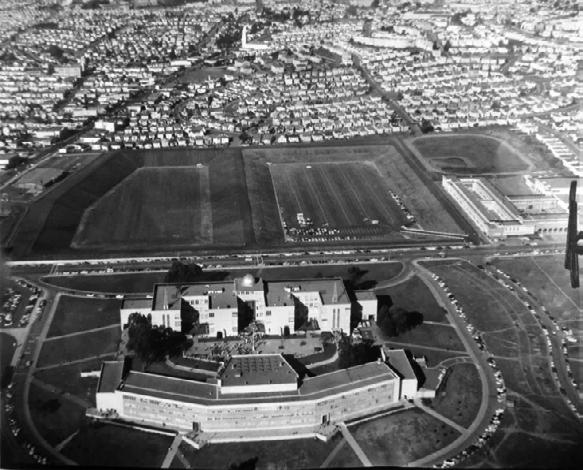
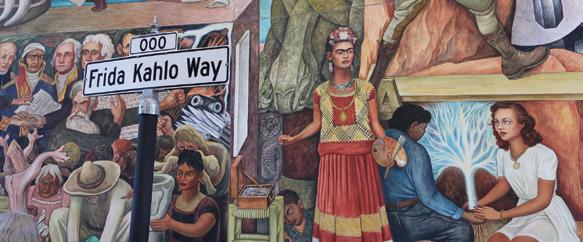
The road running alongside the west side of Ocean Campus is renamed Frida Kahlo Way in honor of Mexican artist Frida Kahlo. Kahlo was married to Diego Rivera, whose mural is located at City College.
2024
A ribbon-cutting ceremony for the new state-of-the-art STEAM building is held on December 12, 2024.
Batmale Hall is completed, although due to budget concerns, the exterior tiling is never finished. Named after the college's first Chancellor, Dr. Louis Batmale, it was the last new construction on Ocean Campus for the next 14 years.
1994
The Evans Campus opens, offering classes in valuable trade programs, such as automotive technology and construction.
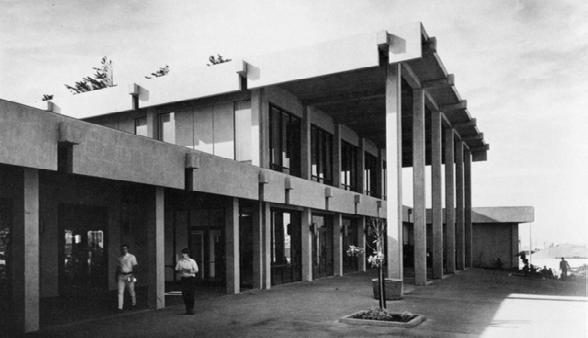

The Health and Wellness Center opens, consolidating the athletic departments and providing a weight room and swimming pool among many other facilities.
The Harry Britt Building (formerly known as the Multi-Use) is completed.
Proposition A is passed in San Francisco, providing more than $800 million in funding for new buildings and facility upgrades. Included in the plans are a new Diego Rivera Theater, STEAM building and Student Success Center at Ocean campus.

2025
City College celebrates its 90th anniversary. The new Student Success Center is slated to open its doors in the fall.
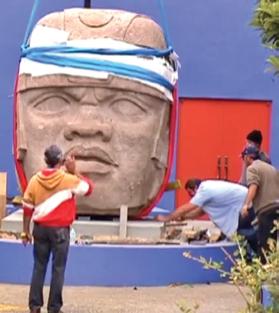

By Finbar LaBelle finbarlabelle@bennington.edu
Without proper funding and staffing, the City College Archive has become lost in the sprawling Ocean Campus. This underrepresented resource with an unexpected history is located in rooms 335 and 334B in the Rosenberg Library.
Open every weekday from 8 a.m. to 5 p.m. and Fridays from 8 a.m. to 1 p.m., the library is a place to study and the home of the college's Library Information Technology and Periodicals Department.
However, few students are familiar with the archives interspersed throughout the building.
A prime example of interest is the Diego Rivera collection housed in R510—a special collection in its own right. As one of the natural offshoots of building an archive, there is a file on Julian Burgman, a librarian who worked extensively on promoting the City College Diego Rivera mural and the special collection.
This and similar files can be pulled, and students may be surprised to see that the documents begin to build a profile on City College staff and people of importance.
Additionally, for our readership and fellow journalists interested in The Guardsman's history, most bound volumes of The Guardsman, dating back to 1935, are located upstairs in Room 517.
Anthony Costa, a librarian for over thirty years and City College's staff librarian, met with The Guardsman to introduce the community to this resource's offerings.
Before joining the City College staff in 2024, Costa was a librarian for the San Francisco Public Library for 20 years, alternating between most major branches in the city. With his vast amount of library experience, Costa still feels that more attention can be given to the City College archives. “Unfortunately, we are not really collecting much these days. In previous years, when there was more time dedicated to it, the archives hoped to collect all relevant information about the college,” Costa said.
Today, the majority of interest comes from alumni and those interested in logging campus magazines such as Etcetera and the English Department's Forum magazine. Workers at the Rosenberg Library are always pleased to see alumni from all different eras of the college return to see a project they worked on decades ago.
Costa elaborated on the importance of a specialized archive. “We have a complete run of all the City College catalogs going back to 1935. So we get a lot of requests from alumni and departments of admissions and records from not only our college, but from other colleges in the country when former students are trying to transfer their units, graduate or transfer classes to other colleges. They often want the course catalog description.
And, if it's a course from the 1980s, we might be the only ones who have it.”
Costa added that students can find most materials from the archives on the library's website via the “collections” tab.
Costa, limited to his duties as a librarian, admitted that with the inconsistent focus on the archives, “I couldn't really tell you about all that is in the archive.”
The Rosenberg Library team hopes to draw more attention to the archive and garner a wider audience. The first potential step would be to hire a full-time archivist to preserve and continue the collection.
Regarding the need to make possessions available, Costa pointed to college records where, “you can see many times that we have requested an archivist, but so far, no real action has been taken [by the college].”
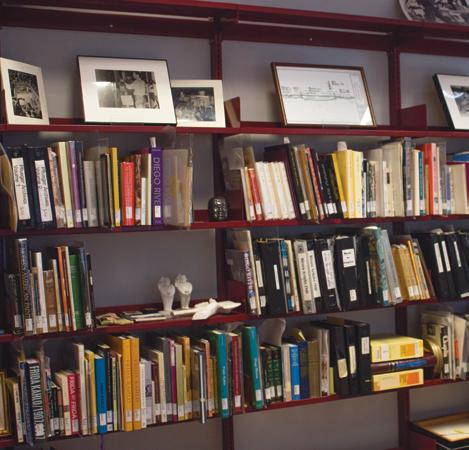
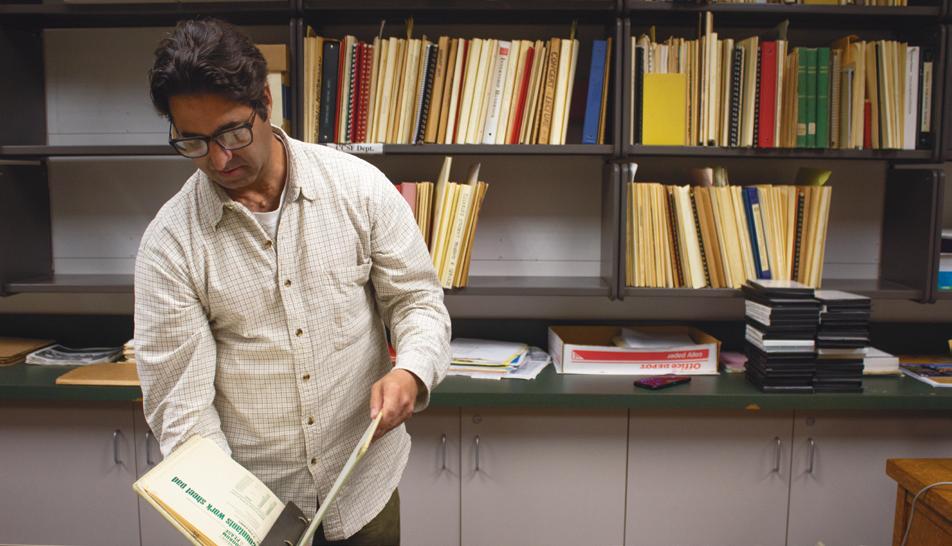
Higher attendance and subsequent demand could encourage the college to support the archive. Using this vital resource could combat some direct issues encountered by the library, archive and staff.
“We generally try to accommodate requests for appointments, but it's not always possible because of limited staffing budgets. Yet anybody can make an appointment to come,” Costa explained. He mentioned that “the biggest issues that we run into” have all to do with the fact that there is no archivist on staff, and these requests become a “strain on our workload.”
Researchers, students and alumnus alike are denied requests more often than the staff would like. “Most times, we're not equipped to accommodate their request. We truly just need another person on staff,” Costa expressed.
The Guardsman's interview with Costa led to correspondence with former faculty member and admin Christopher Kox, who was heavily involved in the archive. Kox only echoed Costa's sentiments while delving into the colorful and peopled history of the archive.
“At this moment, the budget for the college continues to be very tight because the number of students has declined precipitously over the past 20 years. I am confident that the librarians are doing what they can, under the circumstances, to meet the expectations of students at CCSF. Still, it would be good if at least one librarian were granted about a third of their duties, to manage archives and serve those seeking materials from it,” Kox said.
Kox chose to begin at the very beginning, 1935 to be exact, when the SFUSD founded City College. Initially, with one location at Galileo High School and the other in the 500 block of Powell Street, both locations were equipped with libraries from their very inception. This was possible from a starter collection of about 3,000 books, gifted from the University of California, and soon after, other gifts and donations followed.
According to Kox, the public sought a new central campus after the donations. “By 1940 or 1941, Science Hall was built on what is still the main campus at Balboa Park. The library was located [there] until Cloud Hall was built in 1953. The library was on the third floor of Cloud Hall, and over the years, other ‘learning resource’ services located on that floor. The library was built with the idea of [housing] the Diego Rivera mural on one of its walls,” Kox said. The mural was earmarked as a gift to the college by Timothy Pflueger, architect of the college and principal involved with Art in Action at the 1939 World's Fair on Treasure Island. But this did not materialize then, or later in 1995 when the new library, the Rosenberg, was completed. Within the library at Cloud Hall, located within the department of Library Information Technology, was a small “college archive” collection.
A more solidified archive, although relatively informal, came into place with the hiring of Department Chair John Few, with duties to maintain it, in the 1980s. Few meticulously transferred materials deemed crucial to the college's history from the general library to the archive collection. This effort was supported by fellow librarians, including Terry Alberigi, the former head of the periodical department. Their priority was to include early college catalogs, publications and the student newspaper dating back to 1935. The collection expanded to encompass documents from the Academic Senate, materials from faculty and classified staff unions, college board agendas and minutes, faculty sabbatical reports, artifacts and trophies and selections
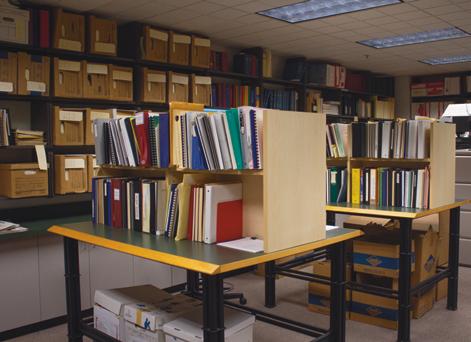
from student activities. Similar to its present state, this collection operated without official funding or college endorsement and remained relatively small.
But throughout the correspondence with Kox, it became blatantly obvious that there has never been proper support for the archive, only people with a large bandwidth and a reverence for archives and special collections.
Flashing far into the future, in 2001, Few retired from his position in Library Technology and Archives. Kox then assumed both positions. In the 2010s, the college did, in fact, recognize the archives as a “resource,” and just before Kox retired, he made the archives far more accessible by developing the aforementioned library research guide, which he self-described as a “fair reflection of materials in that collection.”
Kox continued, “Indeed, there are still active links from the resources described to some digital material such as photographs, and there are finding lists for publications held in the archive.”
Overall, Kox seemed delighted and engaged in his career at City College and his involvement in the archives. He ended his correspondence with The Guardsman on an optimistic note, egging students on to go discover the treasures of the archive, “Students have always gotten thrilled looking at the newspaper, at old college catalogs, and at photos of students and structures from the past. Fortunately, some photos can be viewed online and The Guardsman at the Internet Archive. I always enjoyed some of the scrapbooks created by members of student clubs in the 1940s and 50s, but these are in very fragile condition today.”
With this being the final issue of the year, this article serves as a broader reflection on the enduring importance of diverse resources and practices, including those that may seem outdated or unfamiliar to our current generation. In an evolving future where the increasing presence of artificial intelligence may influence critical thinking, engaging with the tangible preservation of information becomes a vital practice for discerning truth, understanding historical realities, and maintaining factual accuracy.
The intention with this exploration of archives has inspired an appreciation for these enduring practices, recognizing their potential to safeguard the integrity of truth in a changing world. Embracing valuable aspects of the past alongside technological advancements offers a balanced path forward, keeping important histories alive and tangible.
By Henry Crowell henrycrowell5@gmail.com
Since 2016, San Francisco State University students have had the “Gator Pass” under their belt. This allows students unlimited rides on every public transit agency in the Bay Area as a part of their tuition fees. Why are City College students not afforded something similar?
City College, despite its name, is a commuter school. People are driving or taking public transportation from all across the Bay to get to class. And this is no cheap feat, with gas prices continuing to skyrocket. A round trip on BART can range anywhere from $4.80 to $19, depending on where your station of origin is.
So why has City College not made an effort to implement a “Ram Pass”? I know many students, including myself, would take full advantage of the opportunity for free access to public transportation that we already use, and it would allow students who drive to save on gas money and carbon emissions.
As it turns out, they've tried. Extended Opportunity Programs and Services offers $400 Clipper Cards and $100 to eligible students. However, I learned that these specific Clipper Cards do not consider transfers, meaning you have to pay full price each time you tap your card.

As you can imagine, these deplete quite quickly, leaving students who partake in this venture to dip into their own funds at a certain point.
Obviously, this pales in comparison to unlimited rides on any and all transit across the Bay, and it's made even worse by the fact that City College is entirely a commuter college, with no on-campus student housing available. Prospective students are left stuck between a rock and a hard place, forced to choose between the cost of driving and the cost of taking public transit.
A factor that may weary some about implementing a transit pass is the
By Emily Thorsen ethorsen@mail.ccsf.edu
Since Trump's inauguration for his second term in January, he has enacted 147 executive orders into legislation. Executive orders have served as Trump's loophole for getting his alt-right MAGA viewpoints into law without consulting the legislative and judicial branches of our federal government. Considering the nature of executive orders, the severity of the agenda Trump is trying to push will likely weary those who value our right to free speech, press and others within our nation's founding documents.
It is mind-boggling to me that the same people who propose that
our nation would benefit by turning back the clock on rights granted to marginalized groups are the same who show little respect for the values this nation was founded on. Trump's 147 executive orders enacted within his first hundred days in office serve to strip this country of its democracy. Actions include unlawfully jailing and deporting legal residents purely based on country of origin or for practicing their right to free speech.
Between the increasing number of lawsuits against Trump and his administration for the heinous crimes they have already committed so early on in his presidency, and the fact that he thinks he can override the balance of power between the three branches of government, the administration
is operating as if it is exempt from the law. Experts have not yet called a constitutional crisis into effect; however, how much longer can this mayhem persist?
It is clear that the president and his administration only obey constitutional law when it aligns with their agenda. It pains me to see people still believing the lies and manipulation so clearly evident in anything that comes out of Trump's mouth. At what point will the American people band together to restore our nation's true democracy and faith in humanity before it is too late? Or has that point of no return already surpassed us?
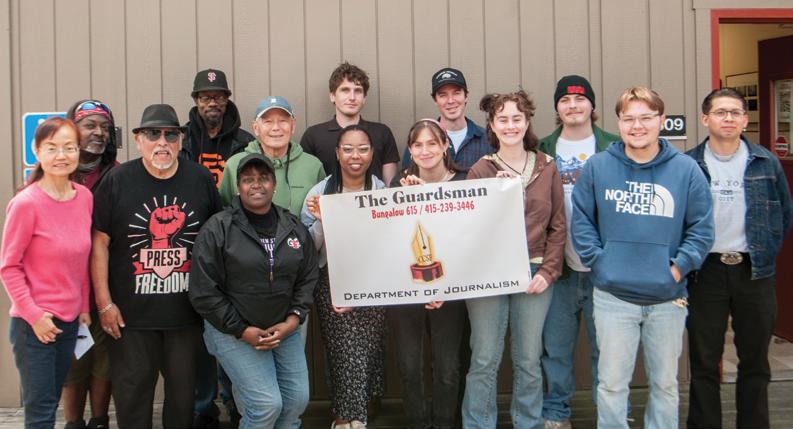
fee associated with it, as SFSU students currently shell out $130 a semester for access to the “Gator Pass.”
For some, the best option if they're taking transit to class daily is to buy the monthly pass, and as of July 1, that will run you a cool $104 a month.
Accounting for the fact that the $130 being spent is stretched out over almost five months and gives the user unabated access to all the transit the Bay Area has to offer, it gives prospective students another reason to choose a competing two or four-year institution over City College.

The Guardsman Editorial Staff can seldom rest from its job of safeguarding the truth and justice for this institution. Yet as the fog of finals begins to break and the students start to see more clearly where the next step in their future might lead, we remind our readers to never take a break in life from the pursuit of knowledge, and enjoy your summer! "The truth shall make you free!"
When not on campus, stay up to date with the latest stories on TheGuardsman.com or visit your local public library for the most recent print edition.
By Lloyd Cobb Jr lcobb1@mail.ccsf.edu
T
he trophy cases at City College are getting crowded these days. During the 2024–25 season, the college's women's athletics programs have rewritten record books across multiple sports, bringing home championships and top finishes while maintaining a collective 3.4 GPA.
Their wins piled up across fields, courts and pools, turning the 2024–25 season into a campus-wide celebration of excellence.
The women's soccer team powered through the season with a 17–3–3 record, winning the CoastNorth Conference and reaching the 3C2A Final Four for the first time since 2013. They finished ranked No. 4 in the nation, the highest in program history.
“This season was pretty remarkable,” said Head Coach Jeff Wilson. “The highest finish this school's program has ever had.”
Both sophomores Arpan Bahia and Paige Pineda Aliamus were selected to the United Soccer Coaches All-America Junior College DIII First Team. Pineda Aliamus was also selected as the Coast North Conference's Player of the Year, while Bahia was selected as the conference's Defender of the Year. Sydney Grundland Lanuza was also elected as the conference's Freshman of the Year.
“Last year we lost in the Elite Eight, but this year we made it to the Final Four,” Wilson said. “I just sense a kind of desire for the returning players to keep pushing the program.”
Women's basketball continued the run, going undefeated in conference play to capture their ninth straight title under Head Coach Derek Lau. The team reached the NorCal championship and finished 19–9 overall.
“We had to battle mentally; this week was tough,” Lau said after a key win. He earned Coach of the Year honors, while sophomore Madison Thomas was named Conference MVP.
The Women's Badminton team closed out the season with a 6–3 conference record that led to the state championships with singles and doubles matches.
In singles, the Rams' Jacqueline Leong (North No. 4) placed third in the singles championship bracket, only narrowly losing her chance at the state title after battling the most skilled players in the conference.
In doubles, the duo of Leong/ Guan were the North's No. 5 seed while Ho/Maria Yau Zhang (North No. 7) and Eunice Wu/Zoe Tao (North No. 9) all performed at a high level in 3C2A championships but did not ultimately place.
The swim team surged in the spring, finishing second at the Coast Conference Championships. Sophomore Sophia Tran won gold in two events and was named Performance of the Meet.
“We have a strong group of swimmers with a lot of potential to compete well at the conference championship,” Head Coach Phong Pham said. His team's success capped a season of steady growth.

At the 3C2A State Championships in Santa Rosa from May 1–3, Sophia Tran compiled a pair of seventh-place finishes to earn All-American honors in the 100 Breast and 200 Breast. She also finished 10th in the 200 IM. Lian Mar grabbed All-American status in the 100 fly by taking seventh place. She was also 15th overall in the 100 IM.
In relays, the team of Remy Dizon, Tran, Mar and Samantha Ng took sixth in the 200 medley while the squad of Serawit Ezra, Tran, Mar and Ng finished seventh in the 400 medley. Also, for the Rams the 400 free relay team of Ng, Ezra, Mar and Tran took 15th place.
The tennis team ended the regular season with a 10–3 overall record and finished tied for first place in the final Coast Conference standings with Foothill College at 10–2.
By Isaac Ortiz Dominguez iortizdo@mail.ccsf.edu
Jacqueline Leong placed third in the singles championship bracket in the 3C2A Women's Badminton State Championships. Leong was declared as an All-American athlete in the award ceremony for the competitors.
Leong played against PJ Yang of Fresno Community College. Yang placed second while Makayla Than from De Anza College placed first to win the state championship on Saturday, May 10.
Yang won 2–1, Leong took the first match, and lost the following two matches in a tense back-andforth. Leong played with a stoic
determination throughout the tournament. The Rams cheered on Leong in the nerve-wracking finale. She came close, with the series scores being: 21–17 for Leong, 20–22 and 21–7 for Yang.
When asked about her performance throughout the tournament, Leong thought it was insufficient. “I could have won, I could have pushed through,” Leong said.
Leong persevered through the grueling opening rounds. She faced difficult matchups from De Anza College and San Diego Mesa College. De Anza had four players going into the quarter-finals and two players into the semi-finals.
“Day one, I think Jacqueline's road to the semis was tough, like she
had to play a lot of really good players who kind of upset a lot of the south number ones,” Head Coach Tiffany Mariano said.
The only games lost throughout the conference were to Fresno Community College and De Anza College, with a record against Fresno of 1–1 and 0–2 against De Anza.
“A run for our money? Yeah. Last year no one really gave us a run for our money except Pasadena in the state finals. But Fresno and De Anza have always been generally good teams,” Mariano said.
Sophomores Zoe Tao and Isabella Li were classmates with Leong in high school. Tao said Leong was their pride and joy and has always been number one.

For Head Coach Mary Graber and the Rams, it is the program's second consecutive conference team title.
The Rams are led by No. 1 singles player Elizabeth Au and No. 2 Natalie Batlin. The two performed well in the Coast Conference tournament at Ohlone College, punching their ticket to the state championship.
Ojai Valley Tennis Club served as the stage for the 3C2A State Championship, 359 miles from the Rams' home court, in southern California. Au won two rounds of singles matches, falling in her third versus Bakersfield College. Batlin won her first before coming up just shy of victory in her second round.
The duo of Au and Batlin also qualified to compete for the State Doubles Competition, joined by No. 2 doubles team of Rita Williams and Trevor Wade, as well as No. 3 doubles team of Sara Kwong and
Vanessa Chi. Each of these teams won their first State Championship games. Au and Batlin went on to their third round to fall to Mt. San Antonio, while the latter two teams bowed out in their second matches.
Across sports, City College athletes created a culture of support and pride. Together, they maintained a 3.4 GPA and inspired the community.
“This is something special,” Coach Pham said during a break in competition, adding that at City College, winning didn't just happen—it spread.
From soccer to swimming, each victory felt connected. The Rams didn't just win games—they built something bigger.

By Kyra Young kyrajyoung@gmail.com
The women's swim team made history for City College this May, diving across the spring season's finish line at the 3C2A's California Community College 76th annual Swimming and Diving State Championship meet.
From May 1–3, Santa Rosa Junior College hosted swimmers from 33 swimming teams across California. This year, City College sent five of its own to Quinn Aquatics Complex to represent the Rams: sophomores Remy Dizon, Lian Mar, Serawit Ezra and Sophia Tran, and freshman Samantha Ng.
Across eight different events, the Rams swam away from the weekend ranked No. 13 in the state—only a point away from Las Positas College at No. 12.
“Our swimmers did an amazing job at State,” said Head Coach Phong Pham. “This was our second-best state team placing in City College's swimming history.”
The team of Dizon, Tran, Mar and Ng placed sixth for the 200 medley relay at 1:52.91—the highest placing by a City College swimming relay team in history.
The 400 medley relay team, composed of Ezra, Tran, Mar and Ng, finished seventh out of 16 teams at 4:08.62. The same crew also competed in the 400 free relay and placed 15th out of 16 teams at 3:49.59. Tran finished the weekend with personal bests in each of her races— the 200 IM, the 100 breaststroke and the 200 breaststroke—and placed in the top 10 for each race.
Mar swam in the 100 fly and the 100 IM, placing eighth and 15th , respectively.